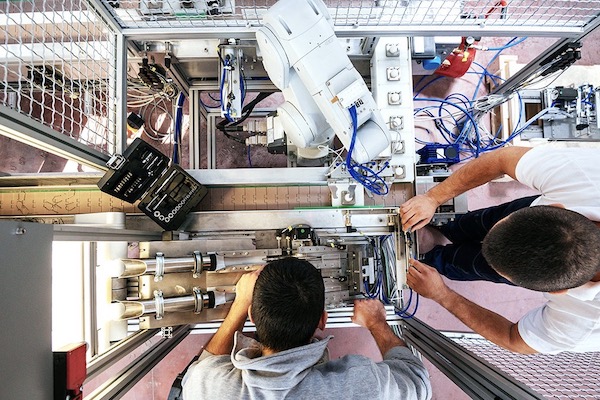Published on the 17/07/2025 | Written by Heather Wright

But reskilling crucial…
New Zealand and Australian workers have come out in support of automation in their jobs, with nearly two-thirds believing the technology will have a positive impact on their current job and their career prospects.
Research by recruitment firm Robert Half shows 68 percent of Kiwi employees and 63 percent of Australian employees surveyed see automation as an opportunity, rather that a potential cause of lost jobs.
“Successful adaptation, by both organisations and employees, is key to building a future-ready workforce.”
Nearly half (49 percent) of Australian employers plan to automate processes and reskill or upskill their employees, with 35 percent saying they intend to hire staff with AI/automation skills, Robert Half says.
Megan Alexander, Robert Half New Zealand managing director, says the ‘broad embrace of automation’ in New Zealand businesses is also an ‘undeniable reality’, though the company didn’t reveal Kiwi figures around how many employers were automating.
A ServiceNow report in late 2023 claimed AI would automate 1.3 million Australian jobs – 9.9 percent of the market – by 2027. The New Zealand Productivity Commission meanwhile has gone with even bigger figures: It says up to 46 percent of jobs in New Zealand could be at risk of automation over the next 20 years.
But those figures, once seen as inflicting fear in employees over the potential for widespread job losses, are for many being seen as an opportunity to improve and streamline processes.
The Robert Half results show 68 percent of Kiwi workers and 63 percent of Australian workers expect automation to create greater demand for their skills and improve their career outlook. Around a quarter in each market expect automation to have no impact on their job or career prospects while nine percent of Kiwi and 11 percent of Australian workers say automation will negatively impact their career because it could make their role and skills obsolete.
It’s important here to note that the survey – which included 500 full time office workers in New Zealand and 1,000 in Australia – covered those in finance, accounting, business support and IT and technology.
Nicole Gorton, Sydney-based Robert Half director, says while there’s a perception that automation is about cutting costs, companies planning to embrace automation cite streamlining processes, increased efficiency, reducing errors and freeing up employees to focus on more strategic and fulfilling work.
Bridging the gap of skilled professionals not being available in the labour market was a key reason cited by employers for automating in 2025.
Just four percent of Australian employers had no immediate plans to automate processes, according to Robert Half. Thirteen percent said they were considering options, but hadn’t finalised plans. (Robert Half did not run employer research in New Zealand, so no figures are available on Kiwi plans.)
“Employers are focused in building a future-ready workforce, and successful adaptation, by both organisations and employees, is key to making that happen,” Gorton says.
When asked what they would do if their job became partially automated and their employer asked them to change roles and learn new skills the majority (64 percent in New Zealand and 60 percent in Australia) said they would participate in training to reskill into a new role within their current employer.
That was a step to far for 16 percent of Kiwi respondents and 19 percent of Australians, who said they would jump ship, seeking a new job at a different employer.
Interestingly, others (13 percent for NZ and 14 percent in Australia) stated they’d look for a different role with their current employer.
“Employees today are motivated to collaborate with their employers in the transition towards greater automation,” Alexander says. She says organisations need to invest in reskilling and upskilling initiatives to ensure their workforce is equipped to thrive in an automated environment.
“This is a win-win for companies, who will have the skilled workers they need, and a loyal and managed workforce.”



























